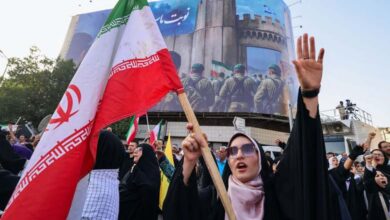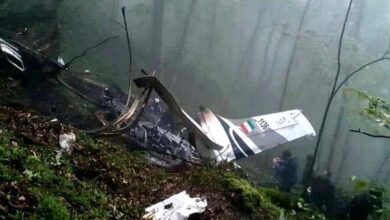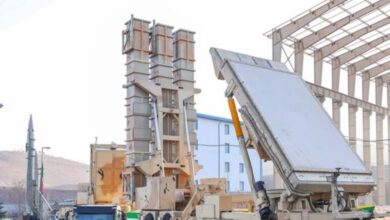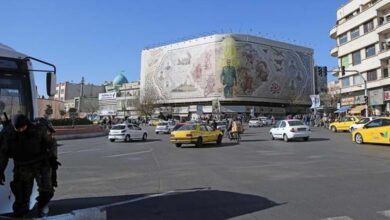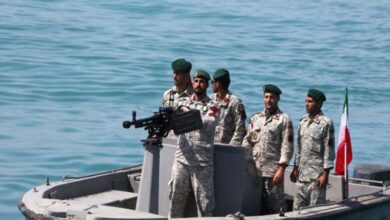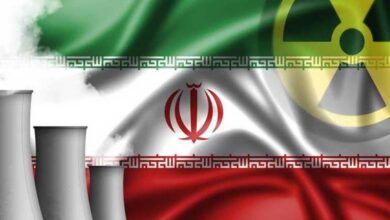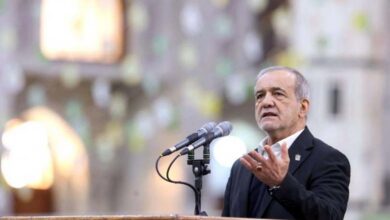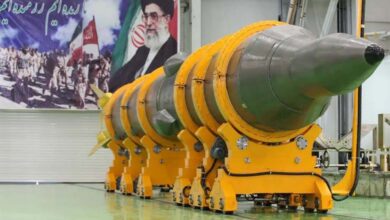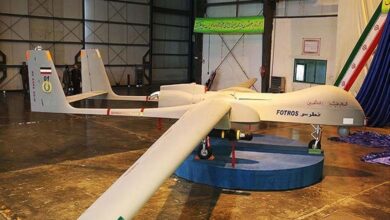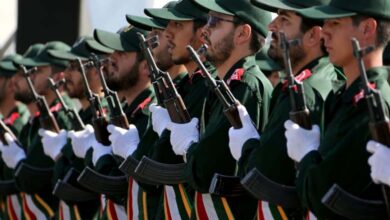Iran mobilizes its agents in Iraq against U.S. presence
Escalation by Shiite militias embarrasses the Iraqi government, which finds itself lacking political and sovereign decision-making in the country. It fears the impact of these attacks on the economy, as the United States may impose economic sanctions on Baghdad
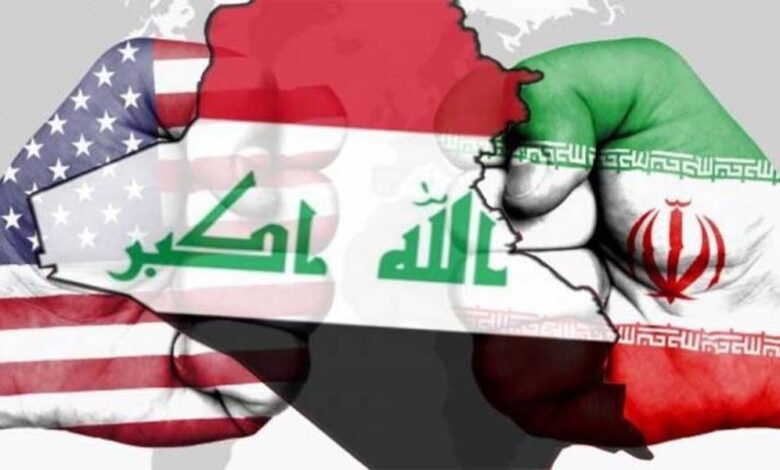
The Iraqi scene is witnessing an unprecedented escalation by Iranian-backed Shiite militias against foreign military presence, with a series of threats and attacks targeting American bases and interests, and the Al-Nujaba Movement declared what it called the “War of Iraq’s Liberation from U.S. Forces.”
All of this comes against the backdrop of the ongoing conflict in Gaza. While the main headline of this front, which could ignite at any moment, appears to be solidarity with the Islamic Resistance Movement, Hamas, Iran is not devoid of exploitation in an attempt to strike with the hands of its agents in the region to achieve the goal of ending American presence in its vicinity.
The Secretary-General of the Islamic Resistance Movement “Al-Nujaba” announced on Wednesday that the armed factions “have decided to liberate Iraq militarily” from the presence of foreign forces, in the latest episode of threats launched by armed factions loyal to Iran in Iraq.
Akrem al-Kaabi, the Secretary-General of the movement, said in a statement that “the Iraqi Islamic Resistance has decided to liberate Iraq militarily and to resolve the matter, and what is to come is greater.”
The audience of the resistance celebrated Al-Kaabi’s announcement on social media, praising the factions of the resistance and their supporters in Iran. However, many followers questioned this announcement due to the affiliation of the Al-Nujaba Movement with the US-supported coordination framework. A comment on the X website stated:
“The armed Shia factions loyal to Iran in the region have intensified their attacks on military bases of the US-led international coalition against ISIS in Syria and Iraq following the events of October 7th in Palestine. Despite these factions being known for their allegiance to Iran and their role as its military arm in the region, Iranian Foreign Minister Hossein Amir Abdollahian denied any connection between Tehran and the attacks carried out by these factions, stating that the groups attacking US forces in Syria and Iraq were acting independently and not receiving orders or directives from Tehran.
Abdollahian stated in an interview with Bloomberg, ‘They do not receive any orders or directions from us. The US side claims that these groups are affiliated with Iran, but these groups make their decisions independently.’
US officials have stated that they do not have concrete evidence that Iran explicitly ordered the attacks, but they hold Iran responsible because it supports these groups. The Iran-backed factions continue to carry out almost daily attacks targeting Iraqi bases with the presence of US forces, such as Ain al-Assad base in Anbar, Victoria base at Baghdad International Airport, and al-Harir base in Erbil, under the slogan ‘Avenging Gaza.’
The Houthi rebels in Yemen have also escalated the situation by announcing the launch of a large number of ballistic missiles and drones towards Israel. The Houthi military spokesperson, backed by Iran, announced on Tuesday, continuing to launch missiles and drones towards Israel until ‘the aggression’ on Gaza stops, conducting three such operations since the outbreak of the war between Israel and Hamas on October 7th.
The Syrian Observatory for Human Rights reported that the Iranian militia leadership had given strict orders to their forces of various nationalities to be on full alert along the border strip in the Syrian desert, such as the Badia of Homs and Deir ez-Zor, and to be fully prepared for any developments in the region. The At Tanf base, which is part of the ‘international coalition,’ within the 55-kilometer region at the Syrian-Iraqi-Jordanian borders, was attacked by drones affiliated with the Iranian militias, hours after the international coalition forces were put on high alert at the base.
These factions have taken security precautions, including changes in the movements and internal and external transfers of some of their leaders, fearing a US military response due to the continuous attacks on their forces in Iraq and Syria by Iran-aligned factions. It seems that this escalation has put the Iraqi government in an awkward position, as it finds itself lacking political and sovereign control in the country. The government fears the impact of these attacks on the country’s interests, as the United States may impose economic sanctions.
A senior military official from one of the prominent Iraqi factions stated in press statements, ‘Prime Minister Mohammed Shia’ Al-Sudani informed some leaders of the armed factions affiliated with the coordination framework that the US side has clearly informed him that the US administration will soon make a decision to respond to the attacks on its forces in Iraq and Syria, and these attacks, which are increasing daily, cannot be ignored.’
The official added, ‘The leaders of the Iraqi factions took the warnings from the US side seriously and subsequently took security precautions at some of their main headquarters in Baghdad and other provinces, reducing the presence of their members at those headquarters. Security precautions also led to changes in the residence locations of known and exposed faction leaders, and these security measures will remain in effect until further notice.’
Observers believe that there is no doubt that the United States will respond to the attacks by Iraqi factions targeting its interests and objectives in Iraq and Syria. Delaying this response does not mean it won’t happen, but Washington is avoiding escalation at this time, given the increasing events in Gaza.
In turn, the Kurdistan Regional Government seeks to avoid chaos. Kurdistan Regional President Nechirvan Barzani and US Ambassador to Baghdad Alina Romanowski emphasized the importance of preserving the security of the international coalition against ISIS and diplomatic missions throughout Iraq in a statement issued by the region’s presidency. They discussed expanding relations between Iraq, the Kurdistan Region, and United States within the framework of the US-Iraq Strategic Framework Agreement, reaffirming mutual cooperation and the importance of protecting the security of international coalition forces and diplomatic missions across Iraq.


